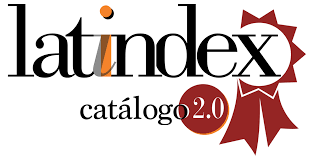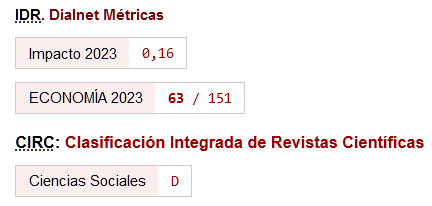Agroecología y Decrecimiento. Una alternativa sostenible a la configuración del actual sistema agroalimentario español.
Keywords:
sustainable degrowth, agroecology, organic agriculture, food system, sustainable consumptionAbstract
The way in that the endosomatic metabolism is satisfied doesn't appear among the high-priority measures in the degrowth programs. It’s due to the identification that is made among food and agriculture, that has a reduced impact in the total consumption of energy. However food process is one of the main unsustainabilility sources in Spain. On the other hand, Agroecology has been developed on the base of local experiences and rarely has developed actions and experiences to a more added scale. Therefore the degrowth has not still incorporated to the agroecological proposals for a sustainable food systems. In this paper we show that Agroecology is an indispensable instrument to make possible the sustainable degrowth of the food system. We also show that the sustainable degrowth should be the high-priority objective of any agroecological strategy. To demostrate it we will carry out an approach to the metabolism of the Spanish food system and their energy cost. The results indicate clearly where this metabolism should degrow. Finally we discuse the different measures base on organic agriculture that it is posssible to implement by policymakers and social movements.
Downloads
References
AEAT. 2010. Datacomex: Estadísticas del comercio exterior español. Agencia Española de Administración Tributaria. http://datacomex.comercio.es/
Aguilera, E; Lassaletta, L.; Gimeno, B.; Porcuna, J.L. 2010. GHG emissions and C sequestration in Mediterranean croplands: available information and gaps (Preliminary results). Round Table on Organic Agriculture and Climate Change (First Workshop FiBl; Frick 10-11 May 2010).
Alexandratos, N. 2006. The Mediterranean diet in a world context. Public Health Nutrition: 9 (1A), 111-117. https://doi.org/10.1079/PHN2005932
Allen, P: and Kovach, M. 2000. Capitalist composition of organic: The potential of markets in fulfilling the promise of organic agriculture. Agriculture and Human Values 17: 221-232. https://doi.org/10.1023/A:1007640506965
Alonso, A.M. y Guzmán, G.I., 2004. Sostenibilidad y Agroecología: Oportunidades para el sector agrario andaluz, en Informe Anual del Sector Agrario en Andalucía, 2003.
Beck, U. 1998. La sociedad del riesgo: hacia una nueva modernidad. Paidós, Barcelona.
Bruinsma, J. (ed) 2003. World agriculture: towards 2015/2030, an FAO perspective. FAO-Earthscan Publications Ltd, London.
Carpintero, O. 2006. La huella ecológica de la agricultura y la alimentación en España, 1955-2000, Áreas. Revista Internacional de Ciencias Sociales, 25:31-46.
Consejería de Agricultura y Pesca (CAP). 2007. II Plan Andaluz de Agricultura Ecológica (2007-2013). Sevilla: Consejería de Agricultura y Pesca de la Junta de Andalucía.
Cotula, L.; Vermeulen, S.; Leonard, R. y Keeley, J. (2010), Land grab or development opportunity? Agricultural investment and international land deals in Africa, IIED/FAO/IFAD, London/Rome.
Delgado, M. y Aragón, M.A. 2006. Los campos andaluces en la globalización. Almería y Huelva, fábricas de hortalizas, en Etxezarreta, M. La agricultura española en la era de la globalización. Ministerio de Agricultura, Pesca y Alimentación, Madrid, pp. 423-474.
Dutilh, C.E. y Kramer, K.J., 2000. Energy consumption in the food chain. Comparing alternative options in food production and consumption. Ambio, 29-2, 98-101. https://doi.org/10.1579/0044-7447-29.2.98
Engel, S.; Pagiola, S.; Wunder, S. 2008. Designing payments for environmental services in theory and practice: An overview of the issues. Ecological Economics, Vol. 65, 663-674. https://doi.org/10.1016/j.ecolecon.2008.03.011
Erb, K.H. et al., 2009. Eating the planet: feeding and fuelling the world sustainability, fairly and humanely - a scoping study. Social Ecology Working Paper, 116.
European Commission. Directorate-General for Agriculture And Rural Development (EU-DGARD). 2010. An analysis of the EU organic sector. European Commission, June 2010.
FAO 2007. Informe Anual. FAO, Roma.
FAO 2010. "FAOSTAT data base: Production: Crops", FAO, Roma.
Francis, C. A.; Lieblein, G.; Gliessman, S. R.; Breland, T. A.; Creamer, N.; Harwood, R.; Salomonsson, L.; Helenius, J.; Rickel, D.; Salvador, R.; Wiedenhoeft, M.; Simmons, S.; Allen, P.; Altieri, M.; Flora, C. B.; Poincelot, R. 2003. Agroecology: The Ecology of Food Systems. Journal of Sustainable Agriculture, 22 (3), 99-118. https://doi.org/10.1300/J064v22n03_10
González de Molina, M., 2009. El desarrollo de la agricultura ecológica en Andalucía. Crónica de una experiencia agroecológica. Editorial Icaria, Barcelona.
González de Molina, M.; Alonso, A.; Guzmán, G. 2007. La agricultura ecológica en España desde una perspectiva agroecológica. Revista Española de Estudios Agrosociales y Pesqueros. Vol. 214, 47-73
Guzmán Casado, G.; González de Molina, M.; Alonso, A. in print. The Land Cost of Agrarian Sustainability. An Assessment. Enviado para publicación a Land Use Policy.
Guzmán Casado, G.I. and. González de Molina, M. 2009. Preindustrial agriculture versus organic agriculture. The land cost of sustainability. Land Use Policy. Vol. 26, pp. 502-510. https://doi.org/10.1016/j.landusepol.2008.07.004
Guzmán, G.I., Alonso, A.M. 2008. A comparison of energy use in conventional and organic olive oil production in Spain. Agricultural Systems, 98, 167-176. https://doi.org/10.1016/j.agsy.2008.06.004
Heller, M.C. y Keoelian, G.A., 2000. Life Cycle-Based Sustainability Indicators for Assessment of the U.S. Food System. Center for Sustainable System, Report No. CSS00-04.
Hornborg, A. 1998. Towards an ecological theory of unequal exchange: articulating world system theory and ecological economics. Ecological Economics, 25-1: 127.136. https://doi.org/10.1016/S0921-8009(97)00100-6
IDAE, 2007. Ahorro eficiencia energética y fertilización nitrogenada. Instituto para la Diversificación y el Ahorro de la Energía. Ministerio de Industria, Turismo y Comercio, Madrid.
Infante, J. y González de Molina, M. 2010. Agricultura y decrecimiento. Un análisis del ciclo de vida del sistema agroalimentario español (año 2000). Paper presented at Degrowth Conference. Barcelona, April 2010.
Jones, P. y Crane, R., 2009. England and Wales under organic agriculture: how much food could be produced? CSA Report, 18.
Kramer, K.J., 1996. Energy Consumption in Food Products Life Cycles, in: Proc. International Conference of Life Cycle Assessment in Agriculture, Food, Non-Food Agro-Industry and Forestry: Achievements and Prospects. Ceuterick, D. Flemish Institute for Technology Research (VITO), Mol, Belgium. pp. 289-293.
Krausmann, F. et al. 2008. "Global patterns of socioeconomic biomass flows in the year 2000: A comprehensive assessment of supply, consumption and constraints. Ecological Economics 65:471-487. https://doi.org/10.1016/j.ecolecon.2007.07.012
Latouche, S. 2006. Le pari de la De ́ croissance. Fayard, Paris.
Lomas, P. L.; Martín, B.; Louis, C.; Montoya, D.; Montes, C. 2005. Guía práctica para la valoración económica de los bienes y servicios ambientales de los ecosistemas. Madrid: Publicaciones de la Fundación Interuniversitaria Fernando González Bernáldez.
MARM, 2009. "Marketing y alimentos ecológicos. Manual de aplicación a la venta detallista", Ministerio de Medio Ambiente, y Media Rural y Marino, Madrid.
MARM, 2010. Estadísticas 2009. Agricultura Ecológica. España. Ministerio de Medio Ambiente y Medio Rural y Marino, Madrid.
Martinez-Alier J. 2009. Socially sustainable economic de-growth 2009. Development and Change, 40(6):1099-119. https://doi.org/10.1111/j.1467-7660.2009.01618.x
Martínez-Alier, J. y Oliveres, A. 2003. ¿Quién debe a quién? Deuda ecológica y deuda externa. Icaria, Barcelona.
MITC, 2009. Informe anual de consumos energéticos. 2008. Instituto para la Diversificación y el Ahorro de la Energía. Ministerio de Industria, Turismo y Comercio, Madrid.
Moreno, A. 2009. Experiencias de articulación y consumo local alimentario en Navarra. Trabajo de fin de Master en "Agroecología: Un enfoque sustentable de la agricultura ecológica". Universidad Internacional de Andalucía.
Offermann, F. y Nieberg, H. 2000. Economic Performance of Organic Farming in Europe. Organic Farming in Europe. Economics and Policy, vol. 5. University of Hohenheim. Stuttgart (Germany).
OSE-FB. 2010. Informe Empleo verde en una economía sostenible. Observatorio de la Sostenibilidad en EspañaFundación Biodiversidad.
Pérez, P.J. y Monzón, A., 2008. Consumo de energía por el transporte en España y tendencias de emisión, Observatorio Medioambiental, 11, 127-147.
Ploeg, J.D. van der, Long, A., Banks, J. (eds). 2002. Living Countrysides. Rural Development Processes in Europe: The State of the Art. Elsevier. Doetinchem, The Netherlands.
Sánchez Cáceres, R. 2009. Aproximaciones Teóricas al Consumo Agroecológico. Estudio de Caso. Trabajo de fin de Master en "Agroecología: Un enfoque sustentable de la agricultura ecológica". Universidad Internacional de Andalucía.
Santamarta, J. 2010. Evolución de las emisiones de gases de efecto invernadero en España (1990-2007). Informe de Emisiones 2009, Comisiones Obreras. http://www.ccoo.es/csccoo/menu.do?Areas:Medio_ambiente:Documentos
Schmidhuber, J. (2006), "The EU Diet - Evolution, Evaluation and Impacts of the CAP", Documentos de FAO, http://www.fao.org/fileadmin/templates/esa/Global_persepctives/Presentations/Montreal-JS.pdf
Schneider, F.; Kallis, G. y Martinez-Alier, J. 2010. Crisis or opportunity? Economic degrowth for social equity and ecological sustainability. Introduction to this special issue. Journal of Cleaner Production, 18: 551-518. https://doi.org/10.1016/j.jclepro.2010.01.014
Soler, M.; Pérez, D.; Molero, J. 2009. Cuentas económicas de la agricultura y ganadería ecológicas en Andalucía 2005. En González de Molina, M., 2009. El desarrollo de la agricultura ecológica en Andalucía. Crónica de una experiencia agroecológica. Editorial Icaria, Barcelona, pp. 135-148.
Stolze, M., Piorr, A., Häring, A. y Dabbert, S., 2000. Environmental Impacts of Organic Farming in Europe. Organic Farming in Europe. Economics and Policy, 6. University of Hohenheim. Stuttgart.
United Nations Environment Programme (UNEP). 2010. Assessing the Environmental Impacts of Consumption and Production. Priority Products and Materials. UNEP, Paris.
Witzke, H. y Noleppa, S. 2010. EU agricultural production and trade: Can more efficiency prevent increasing "land grabbing" outside of Europe?, OPERA Research Center. http://www.appg-agscience.org.uk/linkedfiles/Final_Report_Opera.pdf
Wunder, S. 2005. Payments for Environmental Services: Some Nuts and Bolts. Occasional Paper No. 42. CIFOR, Bogor.
Downloads
Published
How to Cite
Issue
Section
License
This licence allows third parties to share (copy and redistribute the material in any medium or format) and adapt (remix, transform and create from the material for any purpose, including commercial purposes), provided that authorship and first publication in this journal (The Journal, DOI of the work) is acknowledged, a link to the licence is provided, and it is stated whether changes have been made to the work.







